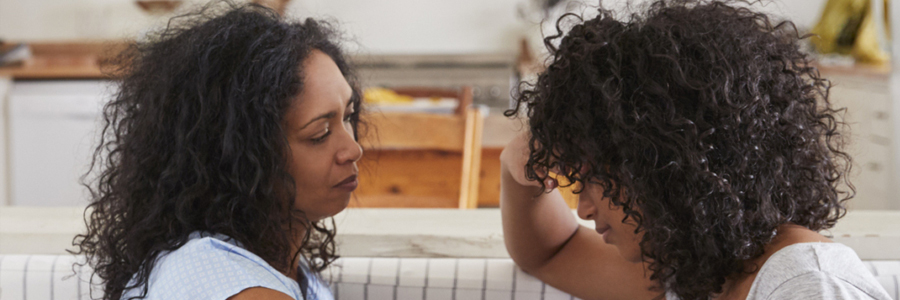Is your teen just worrying or is it something more serious?

Worrying a few days before a big exam, tryout or presentation for class is normal for most teenagers. However, if your teen refuses to go to school or wants to avoid social interactions and activities, you should start to consider that they might have an anxiety disorder.
It might be challenging for you to recognize the difference between run-of-the-mill worrying and an anxiety disorder in your teenager, especially if they shy away from discussing their problems openly with you.
Here’s what you should know about anxiety in teens and how it can be treated:
Symptoms
The hallmark characteristic of an anxiety disorder is worry. All kids experience fears and insecurities, but excessive worry that is out of proportion to a real or imagined threat is cause for concern.
When normal worrying crosses the threshold to an anxiety disorder, there is a significant change in functioning that interferes with school, social interactions, family life or general well-being.
Other symptoms of anxiety may include:
- Poor attention and concentration.
- Restlessness, fidgeting or feeling on edge.
- Physical complaints such as headaches, nausea, stomach aches or dizziness.
- Sleep problems.
- Low energy or tires easily.
- Irritability.
- Muscle tension.
Parents should also be on the lookout for other signs such as avoidance, clinginess, irrationality, overreaction and over-sensitivity.
Diagnosis
You should consider taking your teen to the doctor if their symptoms start to interfere with daily life, including hygiene, school and social life, or if their anxiety is too difficult for them to control.
An accurate diagnosis is the first step in getting help for your teen.
Anxiety disorders are distinguished from one another based on what is causing the fear and avoidance.
A thorough assessment will include detailed interviews and completion of questionnaires or rating scales. These will include information about your teen’s current problems and symptoms, past history of mental health treatment, medical history, family background, school history, family mental health history, social relationships and risk behaviors.
The evaluation should also include a physical health exam to determine if the anxiety is better explained by a medical condition.
Treatment
If your teen is diagnosed with an anxiety disorder, effective treatments, including therapy and medications, are available.
In cognitive behavior therapy (CBT), teens develop an awareness of how negative thinking influences how they feel and how they behave. They learn to challenge unhelpful thoughts that are often untrue or unrealistic. In exposure therapy, a form of CBT, teens learn to confront their fears and change their behavior through gradual exposure to feared objects and situations.
Medication may be prescribed if CBT is ineffective or if your teen is unwilling to participate in therapy. In some cases, anxiety is so severe that medication may be necessary in order for teens to benefit from therapy.
While both treatments separately might yield positive results, research has shown that a combination of therapy and medication is most effective in many cases. It is important to consult with a medical or mental health provider to determine which treatment is appropriate for your teen.




